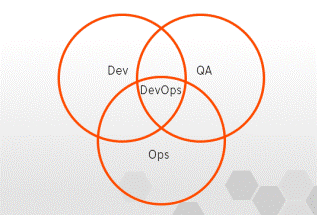DEVOPS AND ALL FLASH
Feb 06, 2017
Organisations of various sizes are seeking cross-departmental integration for IT Operations, development and QA and the topic of DevOps is a hot topic at the moment.
While there are a variety of software tools available to facilitate effective DevOps growth in an IT organisation, high performance, efficient and easy to use infrastructure can have a positive effect and fundamentally change the game.
I recently attended a presentation by a provider of mobile phone applications. In her presentation, she detailed that unlike many key Enterprise applications that were run in data centres and might require an update every 3-6 months or more in contrast for mobile applications, it was far more often sometimes a week or less. This presents huge challenges to customers and their businesses.

While the use case above is certainly not unique – , let’s take a brief moment to identify what DevOps is and its effect on the environment.
First, DevOps is a shift that includes the adoption of new processes and methodologies that foster communication, collaboration and coordination between operations, development and QA teams. This reflects the fundamentals of the development delivery lifecycle. For many the model look like code > build > test > release > manage > monitor > update.
Such DevOps methodologies and models are under served when the infrastructure doesn’t offer the appropriate level of agility and enablement required by the transform. This is where Pure all Flash and its partners such as Actifio and Catalogic can help (both are Copy Data solutions).
The first example of these joint solutions is deployed independent of the production IT operations stack. Deployment requires registering applications and their virtual or physical hosts. In a solution, such as AppFlash, it leverages the capabilities native within the application stack (i.e. Oracle RMAN, VMware CBT, etc…) to seed and incrementally update the source data repository for a truly heterogeneous DevOps environment.
Once up and running it’s a relatively simple process for the IT Ops team to publish policy-based service offerings which may include components such as defined service levels, role-based access, data masking, etc. Dev and QA teams can self-provision application stacks (app and data via compute, network and storage clones) on demand with zero interaction from IT Ops. Provisioning can be published via an HTML interface or called as a REST based API, which can be directly integrated into existing tools and workflows.
Partnering with companies such as Actifio and Catalogic, Pure Storage FlashArray has resulted in significant gains over traditional disk based, Actifio deployments. The FlashReduce data reduction engine is providing a significant increase in addressable storage along with a reduction in capacity requirements for Actifio’s cloning engine. The performance gains have demonstrated the ability to support more concurrent users per Actifio node and enabled a new level of performance oriented testing capabilities.
In summary, the pressure on the DevOps team will continue to increase. Leveraging solutions such as Pure Storage and other automation can be a key differentiator for your IT teams and the business.
Pure Storage will be at the Viadex stand for the duration of ICE Totally Gaming, book a meeting to speak to one of the consultants




